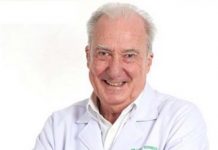The annual Father’s Day check-up packages promoted at my hospital always revive the “good cholesterol” and “bad cholesterol” debate. That in turn brings up the questions on the breakfast egg, and every breakfast seems to feature one, two or even three eggs (have you tried the B. 99 breakfast at Jameson’s for example).
I was even advised that in Australia, one body builder consumed 12 eggs per day, blended and drank, a total of 84 eggs a week, and when his cholesterol was checked it hardly registered. So I don’t blame you if you are getting confused, with all the conflicting information.
Confusing indeed, but like everything you read, not all of it is necessarily correct (even something I might have written)! For example a quick Google (although in this case it will be a ‘gurgle’) brought out the following (in my mind ridiculous) statements:
High cholesterol levels protects against infection (says who?)
High cholesterol levels makes you live longer (really?)
Now contrast that with the following from Mayo Clinic cardiologist Gerald Gau, M.D., who replied to a similar question with the following:
“It’s understandable that you’re confused. Eggs are high in cholesterol, and a diet high in cholesterol can contribute to elevated blood cholesterol levels. However, the extent to which dietary cholesterol raises blood cholesterol levels isn’t clear. Many scientists believe that saturated fats and trans fats have a greater impact than does dietary cholesterol in raising blood cholesterol.
“Adding to the confusion, the American Heart Association recently acknowledged that as long as you limit dietary cholesterol from other sources, it may be possible to include a daily egg in a healthy diet – a statement that was heavily reported in the media.
“Here are the facts: One large egg has about 213 milligrams (mg) of cholesterol – all of which is found in the yolk. If you are healthy, it’s recommended that you limit your dietary cholesterol intake to less than 300 mg a day. If you have cardiovascular disease, diabetes or high LDL (or “bad”) cholesterol, you should limit your dietary cholesterol intake to less than 200 mg a day. Therefore, if you eat an egg on a given day, it’s important to limit or avoid other sources of cholesterol for the rest of that day.”
Now, getting back to the 84 eggs a week body builder with cholesterol levels that hardly registered, that information is as significant as Uncle Ernie who smoked three packs of cigarettes a day, drank one bottle of bourbon and ate a crate of eggs and lived to be 103. One instance is not enough. You have to look at large numbers.
The initial results of the Framingham Study by Dr. Kanel were published in 1960. This appeared to show that cholesterol and heart disease were intimately connected, but the medical world is notoriously slow to react to change, I’m afraid, and Kanel’s words fell onto some stony ground. But there were a few believers (I actually met Dr. Kanel in the early 1970’s and he convinced me).
The believers continued the research and it was in 1994 that the Scandinavian 4S study proved the concept and the need to lower cholesterol, to in turn reduce heart disease, and became universally accepted. This was done with 4,444 patients (and not one 84 egg body builder, or Uncle Ernie), and these results have been verified many times with huge numbers of patients since then.
It is true that we manufacture cholesterol. Cholesterol is found in every cell in your body. This fat-like substance is an important component of cell membranes and a building block in the formation of some hormones, but your body makes all the cholesterol it needs. Any cholesterol in your diet is extra – and that includes the eggs.
The Mayo clinic recommended not more than 300 mg of cholesterol in your diet, and 200 mg if you already have cholesterol deposits in the arteries. At this stage I would give more credence to the Mayo Clinic. What the Mayo Clinic is proposing is part of EBM (Evidence Based Medicine), and the two eggs a week concept seems to err on the safe side. But, as they say in Thailand, “Up to you!”




